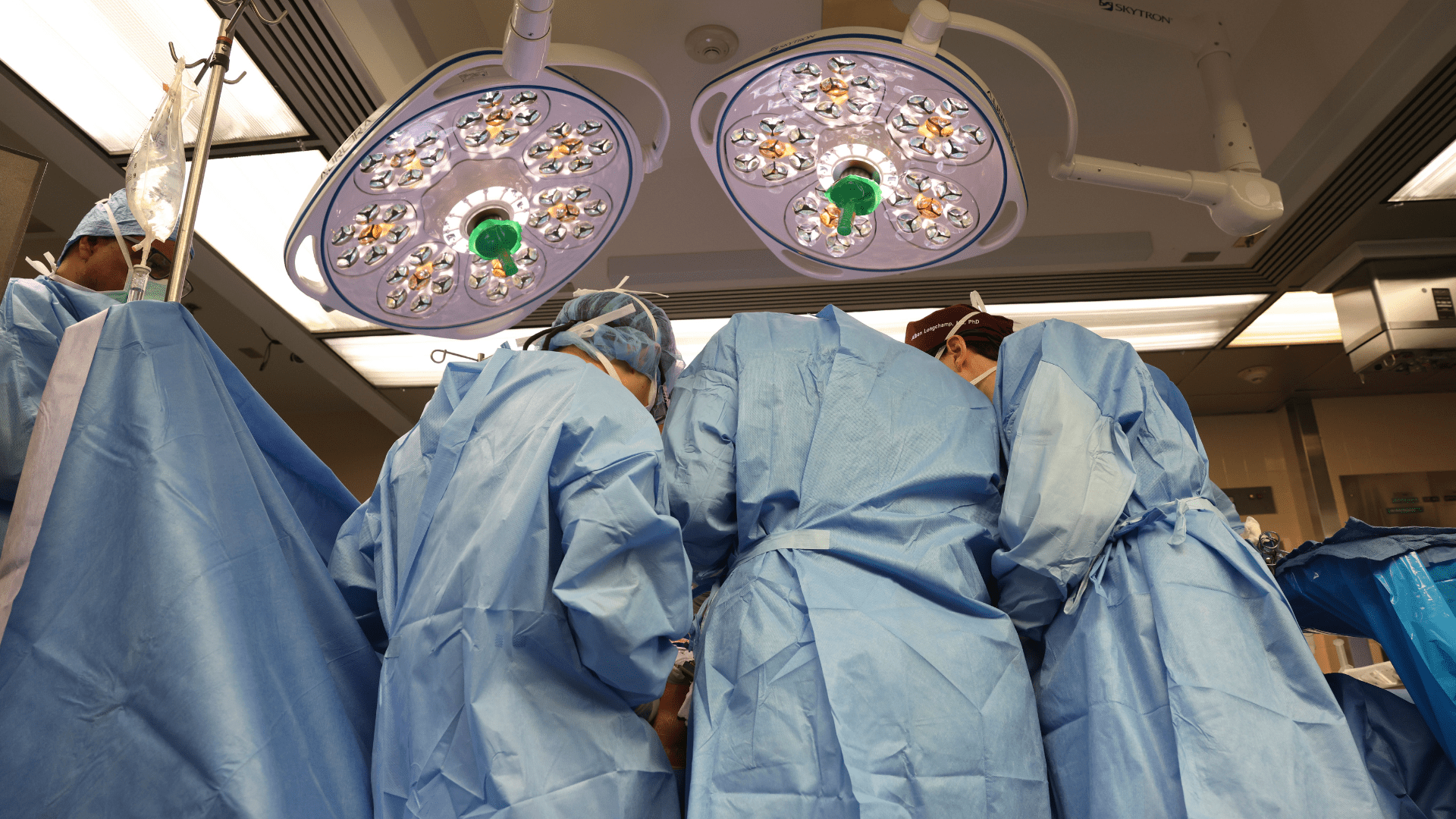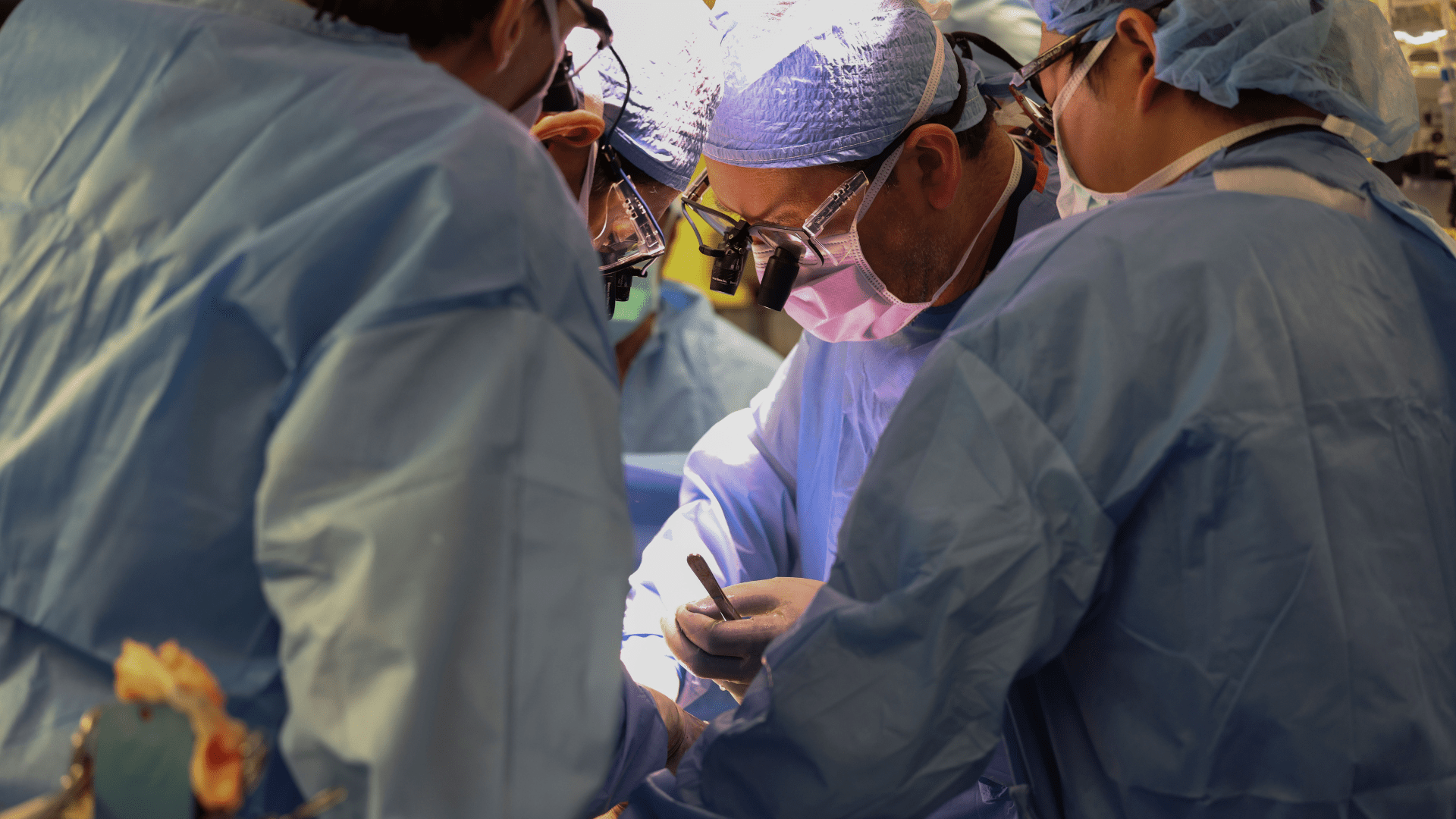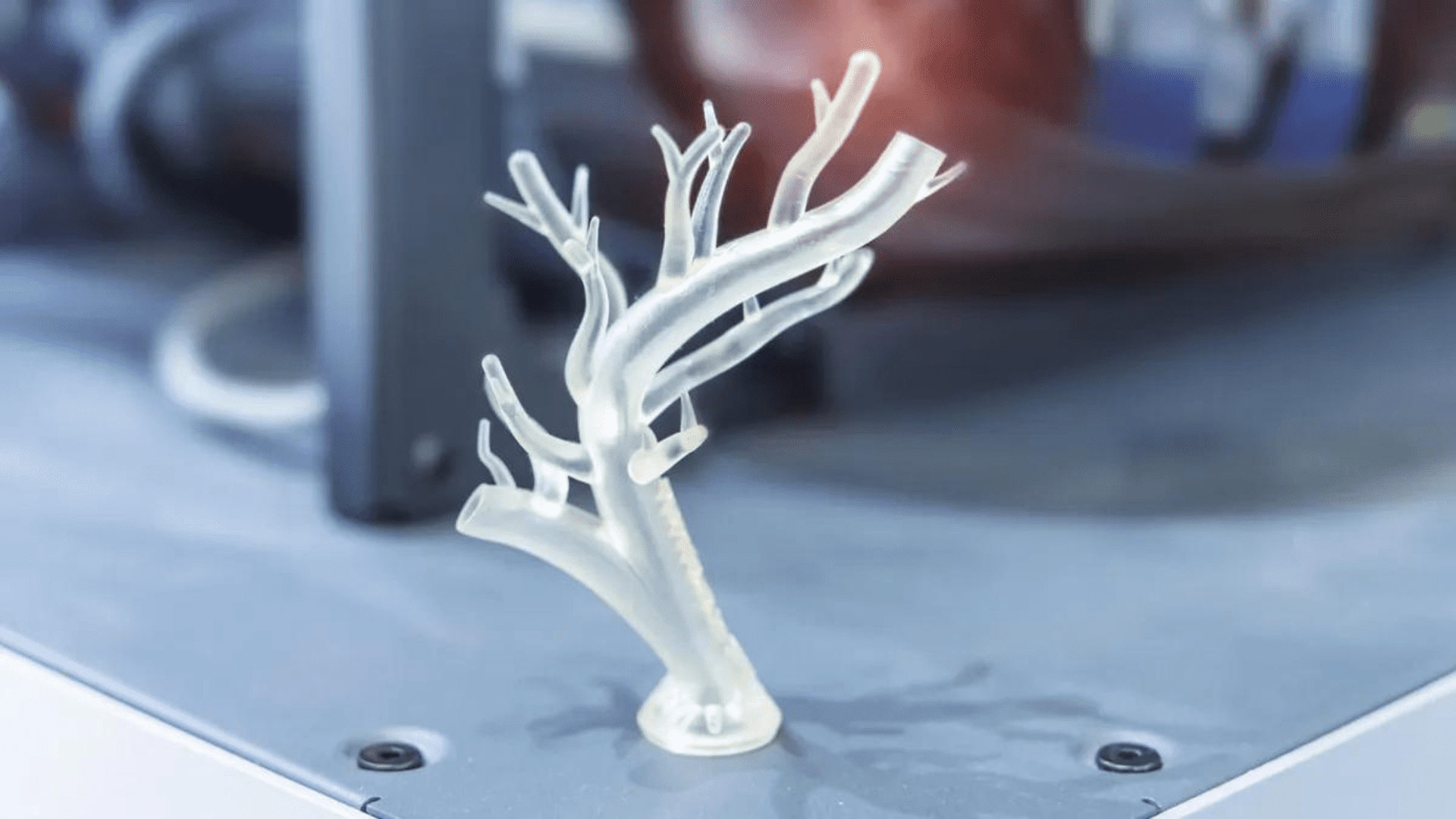Every year, over 100,000 people wait on the transplant list in the United States in hopes of finding a donor. Every day, more than a dozen people die waiting for a new organ. Scientists are taking an innovative approach to finding a successful match.
At Massachusetts General Hospital doctors performed the first successful transplant involving a genetically modified pig kidney.
Breakthrough Transplant

During a four-hour procedure, surgeons at Massachusetts General Hospital successfully transplanted a biologically edited pig kidney into 62-year-old Rick Slayman. The recipient was in end-stage kidney disease (ESKD). This procedure marks a major milestone in the journey of finding readily available organs for people on the transplant list. Previously, researchers at the University of Pennsylvania experimented with pig livers as a bridge to a transplant. In this case, 69 modifications were done to the pig kidney so they could give it to Slayman.
These modifications ensured that the man’s body didn’t reject the organ and that there were no risks of viruses transferring from the pig to the patient. Surgeons received the pig kidney from the company eGenesis of Cambridge, Mass. The company removed harmful genes from the pig and added necessary human genes in order to allow compatibility with the human body. Before the man received the modified organ, researchers tested pig organs with similar edits on Monkeys called cynomolgus macaques. Researchers say the monkeys survived from months to years.
Explore Tomorrow's World from your inbox
Get the latest science, technology, and sustainability content delivered to your inbox.
I understand that by providing my email address, I agree to receive emails from Tomorrow's World Today. I understand that I may opt out of receiving such communications at any time.
Historic Milestone

Massachusetts General Hospital says this successful transplant is a historic milestone in the field of xenotransplantation, which is translating organs from one species to another. They believe it shows a potential hope for patients waiting for an organ transplant and a potential solution for organ shortages in the U.S. Additionally, kidneys are the most common organ transplants. According to the Journal of the American Society of Nephrology, end-stage kidney disease rates are estimated to rise 29-68 percent in the U.S. by 2030., which is another reason this transplant was a historic milestone in the medical field.
When Slayman’s nephrologist Dr. Winfred Williams explained the pros and cons of the operation, Slayman didn’t hesitate. Slayman said, “I saw it not only as a way to help me but a way to provide hope for the thousands of people who need a transplant to survive.”
“The continued success of this groundbreaking kidney transplant represents a true milestone in the field of transplantation,” Williams said, “It also represents a potential breakthrough in solving one of the more intractable problems in our field, that being unequal access for ethnic minority patients to the opportunity for kidney transplants due to the extreme donor organ shortage and other system-based barriers.”
Doctors say Slayman is recovering and is expected to be released from the hospital soon.







